- Home
- Linwood Barclay
Too Close to Home Page 13
Too Close to Home Read online
Page 13
“Discretion?”
“When you’re mayor, well, you can make an ass of yourself the odd time and get away with it. Believe me, I know. But on the national scene, particularly when you’re from a state like New York, not some bumfuck state no one’s ever heard of, like North Dakota—”
“My mother was from North Dakota,” I said. She wasn’t, but what the hell.
“You know what I mean,” Finley said, not offering to apologize. “My point is, when you’re on the national scene, that’s a hearse of a different color.” He looked at me to see if I liked his spin on a shopworn cliché. I gave him nothing. “Anyway, you start running for Congress, people start digging into your past, start asking questions. They start talking about character.”
“You should be okay there, Randy. You’re quite a character. Ask anybody. Ask those unwed mothers whose rug you puked on. I’m sure they’d back you up on that.”
“Yeah, well.” Finley almost blushed. “That was unfortunate. I’m gonna drop by and see Gillian in the very near future and give that home a big fat fucking grant. May not shut up their whining babies, but it ought to shut up their mothers.”
“There should be some sort of award, Randy, for the good works you do,” I said.
“So anyway, what I wanted to know was, could I count on you to be discreet should anyone come sniffing around asking things about me?”
“Discreet about what?”
Finley did half an eye roll. “Look, there were times, while you worked for me, when I was not on my best behavior. But I’m not that person anymore. I’m a different guy. That guy you worked for, that guy, he doesn’t even exist anymore.”
“Good to know,” I said.
“So all I’m saying is, if someone was to come asking what kind of guy I was to work for, could I count on you to say the right thing?” When I didn’t say anything, he continued, “I mean, we’re square, right? You kept things to yourself, and I didn’t go charging you with assault. A lot of guys, they’d have had your ass thrown in jail for what you did.”
Lance interrupted. “You never should have called him at all that night, boss. You should have just called me. Then nothing woulda happened.”
“Maybe,” I said to Lance, “if you hadn’t set up Randy here with jailbait, nothing would have happened then either.” I turned to Randall Finley. “And as for you, you can’t be serious, thinking you were doing me a favor when you didn’t press charges? Think of the witnesses you’d have had to call. How old was that girl? And her friend in the hallway? They’d have had to get permission slips to skip class so they could testify.”
“Here’s the thing,” Finley said. “I could find you a job, Cutter. Working for me, on my campaign.”
“Hey,” said Lance, “you’re not giving him his old job back, are you?”
“Jesus fucking Christ, Lance, would you just fucking drive?”
“What? I’m supposed to pretend I can’t hear?”
“Jim, ignore him. What I’m proposing to you is some other kind of job in my campaign. There’s plenty of work to go around. And you’d be paid well. A lot more than I’m sure you’re getting cutting people’s lawns, for Christ’s sake. What the hell’s happened to you? Have you no pride?”
I wanted to tell him that if I had no pride, I’d still be working for him, but I didn’t have to justify my life to him or anyone else.
He wasn’t done. “Driving around in a silly truck, doing that kind of work, it’s totally beneath you, Cutter. You’re a capable man with a lot of skills. You know how to deal with people. You have great instincts. You’re not easily flustered. I like that. And that business, punching me in the nose, water under the bridge. It’s like it never happened.”
To Lance, I said, “Can you take me back to my truck?” To Randall Finley, “Look, I don’t care what you do. Run for whatever you want. I don’t have anything to say to anybody.”
“You’re a stand-up guy, Jim.”
“Because if I told people what sorts of things I’d witnessed, I’d have to explain why I worked for you as long as I did. And I don’t know how I’d do that. So you don’t have a thing to worry about. And as for the job offer, I’ll pass. I like what I do. I like working with my son. I can look myself in the mirror at the end of the day.”
Finley nodded thoughtfully. “I can’t ask for anything else,” he said. “You don’t want to work for me, I accept that. And I’m grateful for your discretion.”
“That girl,” I said. “The one in the room. What ever happened to her?”
“I don’t know,” Finley said. “Never saw her again. I cleaned up my act after that night, Cutter. Swear to God.”
I could see my truck up ahead. The town car slowed and pulled over to the curb.
Finley extended a hand. Shaking it seemed to take less effort than refusing it, so I gave him mine. I tried to tell myself I wouldn’t be compromising my principles if I didn’t squeeze too hard. While he was pumping my hand, Finley said to Lance, “Go around and get the door for Mr. Cutter here.”
“Huh?” said Lance. “You kidding?”
“You heard me.”
Lance got out and started walking around the car. For a second I thought, fuck it, I can open my own goddamn door, then figured, why not let Lance do what he’s paid to do?
The door opened and I got out. As Lance closed it, he leaned in close to me from behind, his chin over my shoulder, and whispered in my ear, “That’s a first. Don’t think I ever opened the door for a fucking lawn boy before.”
I drove my elbow back, fast and hard, taking him just below the rib cage. The air went out of him and he dropped.
“Sorry,” I said. “That’s my weed-whacking arm. It gets twitchy.”
FOURTEEN
ONCE LANCE HAD GOTTEN HIMSELF off the pavement and driven away with Finley, I got out my phone again, ready to dial the number on Barry’s card. Then I stopped myself.
What did I actually intend to tell him?
There was the short version of the story, of course. That it had occurred to Derek, after our tour of the Langley house, that he hadn’t seen one of the computers that had been in Adam’s room a couple of days earlier. “For what it’s worth,” I could say to Barry.
And he could do what he pleased with the information.
The truth was, I didn’t know that the computer had anything to do with the Langleys’ deaths. For all we knew, Adam had put it in his closet. Barry hadn’t opened it up for us to examine.
And if the computer didn’t have a damn thing to do with this, was there any point in getting into this can of worms of what Derek and Adam had found on it? Other than to cause some possible grief for Conrad Chase? I might enjoy seeing him squirm, but at the same time, I wasn’t vindictive enough to drag an innocent man into a murder investigation purely for my own entertainment. Almost, but not quite.
I decided the best course of action was to know a little more before calling Barry Duckworth. That’s why, for now, going to see Mr. Burgess, Brent Stockwell’s high school teacher, seemed like a plan.
Mothers always think their sons are brilliant. Sometimes they even turn out to be right, but Burgess could supply an unbiased assessment. He could tell me whether Brett really was the gifted writer his mother believed him to be. If he didn’t share that opinion, then there had to be some other explanation for Conrad’s book being on the boy’s computer. I’d realize my rush to judgment, my conclusion that Conrad had stolen his bestseller from a student, was totally off base.
And then, holding off on calling Barry would look like a wise move.
I found the Burgess I was looking for when I called the second of the three numbers I’d taken down from Agnes Stockwell’s phone book. He wasn’t much more than a ten-minute drive from her house, and I didn’t need a map to find it. I’d lived and worked in Promise Falls long enough to know my way around.
I didn’t know what exactly to tell him when I got him on the phone. Once I’d told him my name, and determined tha
t he was an English teacher from Promise Falls High School, I said I needed to talk to him about one of his former pupils. When he’d asked for more information, I’d said it would be a lot easier if I could talk to him about this in person.
“Fine, come on over,” he said. But I could hear the suspicion and distrust in his voice.
Along the way, I was feeling a buzz about what had happened with Lance. It wasn’t exactly a buzz of excitement. Mostly it was a feeling of agitation, with dollops of anxiety and regret thrown into the mix.
It was a stupid thing to have done, to have sucker punched him with my elbow. Briefly satisfying, yes, but I should have been above that kind of behavior. The thing was, he’d pushed my buttons once too often. I guess, when you’re driving around an asshole mayor, there aren’t that many occupations you can feel superior to. So sticking it to a guy who cuts grass for a living, well, that’s an opportunity too sweet to pass up.
I wasn’t particularly worried that Lance would press charges. He’d have a much better chance seeing me convicted of assault with a solid witness in his corner, and I knew he didn’t have one in Mayor Finley. He wasn’t going to jeopardize my pledge to keep my mouth shut by testifying against me for the likes of mullet-headed Lance.
Lance had to know that. But the thing was, a guy like Lance Garrick no doubt had plenty of other ways to seek justice that were outside the court system. Now, because I’d felt the need to show I had some balls, I was going to have to be watching my back for the indefinite future.
It was an aggravation I really could have done without at the moment.
I pulled up out front of the Burgess house—I had yet to learn the man’s first name—and killed the engine. It was a simple, one-story home with a carport at the side, sitting about ten yards back from the street on a small lot. The treeless yard was well kept, not a dandelion or blade of crabgrass in sight. An older model Toyota and a new Civic sat in the driveway. Before I could knock on the glass-and-aluminum storm door, a man appeared there. In his early sixties, I guessed, thin, with hair to match. If he weren’t slightly round shouldered, he might have been six feet.
He opened the door a crack. “You’re Mr. Cutter?” he said.
“That’s right.”
He glanced at the truck and back again. “Kind of a good name for your line of work.” I smiled. He was the first to notice, today. “I’m not in the market for a lawn service, if that’s what this is about.”
“No, it’s not about that,” I said.
“Well, come in, then,” he said, but his tone was not welcoming.
He led me to a small kitchen and directed me to take a seat at an old Formica-topped table. “I’d offer you some coffee but it’s just so hot.” There was no air-conditioning on in the house, and it was bordering on stifling, even with the windows open.
“That’s okay, Mr. Burgess,” I said. “Thanks for taking the time to see me.”
“My name’s Walter,” he said.
“Walter,” I repeated. “So you teach English at Promise Falls High.” Derek went to one of Promise Falls’s other high schools, closer to where we lived, so I wouldn’t have heard of this guy.
“Well, I did. I’m retired.”
“I didn’t realize,” I said. “Been retired long?”
“Four years now,” he said.
“Well,” I said, giving him an obvious once-over, “it seems to agree with you.” I was about to ask whether there was a Mrs. Burgess, but some sixth sense told me not to.
As if on cue, I heard someone coming up a set of steps from the basement. Another man, about the same age as Burgess and as neatly dressed, but heavier, and with slightly more hair, appeared at the kitchen door. He, too, gave me the kind of warm look you might reserve for someone with the IRS.
“Trey,” Walter said, “this is Mr. Cutter. Mr. Cutter, Trey Watson.”
“Hello,” I said. Trey barely nodded.
I didn’t know what Trey’s relationship to Walter was, and wasn’t about to ask. But then Walter said, “Trey and I share this house.”
“Great,” I said.
“What’s this about?” Trey asked. It was the first he’d spoken.
“Mr. Cutter hasn’t quite gotten to that yet, but I’m given to understand it involves one of my former students.”
“For Christ’s sake, Walter, get him the fuck out of here.” Trey turned on me. “He’s been through enough. What trumped-up story you here to peddle?”
I looked from Trey to Walter. “I’m afraid I don’t know what he’s talking about. I came here to ask you about a student you once had named Brett Stockwell. Do you remember him?”
“Of course,” he said cautiously.
“He was one of yours, right?”
“Yes, I remember him.”
“He committed suicide ten years ago,” I said.
“Yes, I know,” he said.
“You see?” said Trey. “He’s going to find a way to blame you for that.”
“Trey,” Walter said gently, “why don’t you give me and Mr. Cutter a minute and afterwards I’ll make us some lunch.”
“Just not tuna,” Trey said. “You made that yesterday.”
“I was thinking maybe chicken salad.”
Trey grumbled something neither of us could hear, meandered through the kitchen, disappeared into another part of the house, and then we both heard a back door open and close.
“Sorry about that,” Walter said.
“That’s okay. Brett Stockwell,” I reminded him.
“Jumped off Promise Falls. I remember. Very tragic.” Walter Burgess looked genuinely saddened.
“Brett’s mother said you were very supportive of his writing.”
“Look,” Burgess said, “we don’t get a lot of drop-in company here, Trey and I, what with both our families pretty much disowning us, so it’s quite lovely and all to have someone drop by who wants to chat, but I don’t understand what you’re doing here. Are you related to Brett? I know you’re not his father. I remember meeting his father, back at parent-teacher nights. Besides, I think he died before Brett did.”
“No, I’m not his father. I’m not a relative.”
Burgess’s eyebrows soared for a moment. “So?” he said. “A stranger, no offense, drops by, asking about a student I had more than a decade ago. I don’t get it. It’s no wonder Trey thinks you’re here to do me harm.”
I said, “I don’t mean to do you any harm whatsoever.”
“I have my reasons for being cautious.”
“Okay then,” I said. “My son, Derek, he likes to collect old computers. Tinkers with them, fixes them up. He was given an old computer that Agnes Stockwell, Brett’s mother, had tucked away in her garage. She was probably going to throw it out eventually, but when Derek expressed an interest in it, she let him take it. When he was looking through what was on the hard drive, I guess it was, he found something kind of interesting.”
Burgess leaned forward a little. He looked more than curious. He looked apprehensive. “What was that?” he asked.
“A book. A novel. There was a novel on the computer.”
“Well,” Burgess said, “that’s not all that surprising. Brett was a prolific writer. By any standard, not just that of a high school student.”
“The book, at least what I’ve read of it, it’s, well, it’s quite unique. I’m certainly no judge of its literary merits, but as a person who does read books, it strikes me as being written by someone mature beyond his years. It has a very interesting central character.”
“And you’re here,” Burgess said, “because you want to know whether the book is based on me.”
I must have done some sort of double take. I wasn’t expecting that. Surely the man sitting at this table with me had not awoken one morning to find his genitals had gone missing. It wasn’t the sort of thing I thought I could ask.
“No,” I said. “That’s not what I was wondering. What I wanted to know is, was Brett capable of something like that? Was he, as a
high school student, and later, as a young college student, someone who could write a book that would possibly be publishable?”
“Well,” said Walter Burgess, “I don’t have in front of me the piece of work you say your son found on that computer. All I have to go on are the writings Brett showed me when I had him as a student, and based on those, my answer would be yes.” He paused. “He was an extraordinarily gifted young man. I never had any other student whose talents even began to approach those of Brett Stockwell’s.”
“That’s saying something,” I said. “That’s definitely saying something.” For a moment, neither of us said anything. Then I asked the question I wanted to ask. “Why did you think the book might have been about you?”
Now Burgess looked embarrassed. “I feel a bit foolish. I don’t know why I said that.”
“I think you do,” I said, trying not to make it sound like an accusation.
“Brett was a very intuitive young man,” he said carefully. “Very insightful.”
I leaned back in my chair. “About you?”
“At . . . times. Brett showed his stories to me for a couple of reasons, I think. First of all, I was his English teacher. I was, of all his teachers, probably the best equipped to offer him some guidance, although I don’t claim to be any writer myself. But I tried to be encouraging to students who showed promise.”
He stopped.
“And second?” I prompted.
“And I was probably the only teacher he had who was gay,” he said. “Or that he at least knew to be gay.”
“Why would that be an issue?” I asked slowly.
“Because I was someone Brett felt he could talk to. He was struggling with those kinds of issues himself.”
“Brett was gay?”
Walter Burgess nodded. “His parents didn’t know. I don’t think he’d actually come out and told anyone, aside from me. Although I think the other kids suspected it. You think everyone’s so open about it now, you think they were even a decade ago. But it’s not always that way. Certainly not where parents are concerned.”
“But he could talk to you.”

 Chase
Chase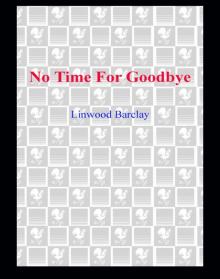 No Time for Goodbye
No Time for Goodbye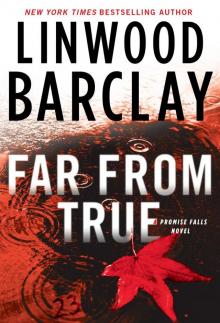 Far From True
Far From True Lone Wolf
Lone Wolf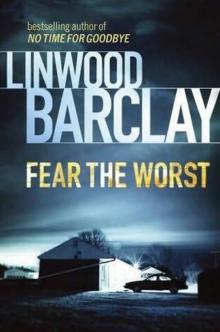 Fear the Worst
Fear the Worst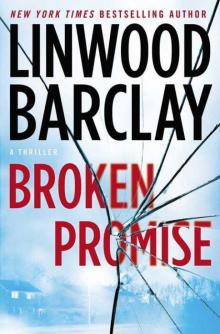 Broken Promise
Broken Promise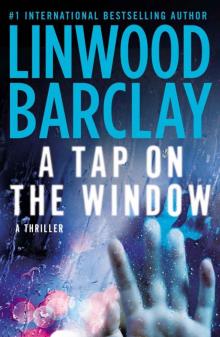 A Tap on the Window
A Tap on the Window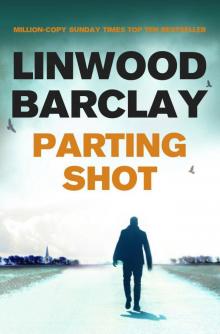 Parting Shot
Parting Shot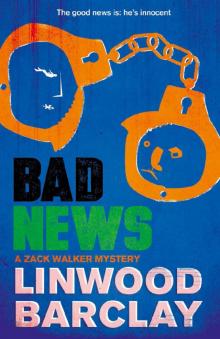 Bad News
Bad News Too Close to Home
Too Close to Home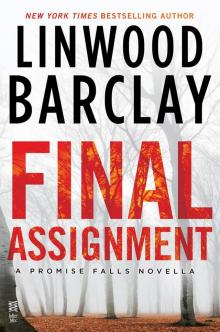 Final Assignment
Final Assignment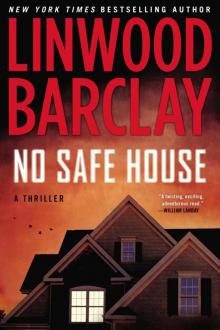 No Safe House
No Safe House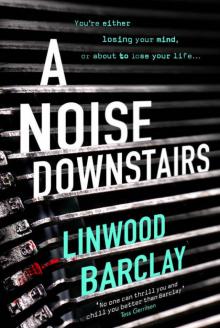 A Noise Downstairs
A Noise Downstairs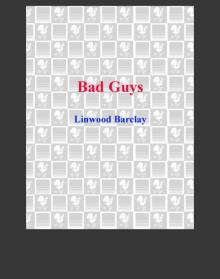 Bad Guys
Bad Guys The Accident
The Accident Stone Rain
Stone Rain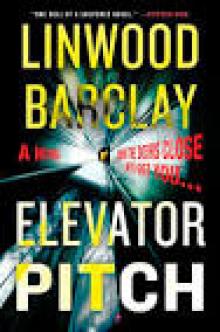 Elevator Pitch
Elevator Pitch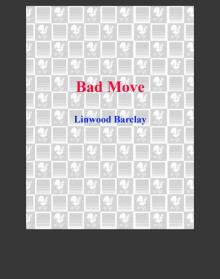 Bad Move
Bad Move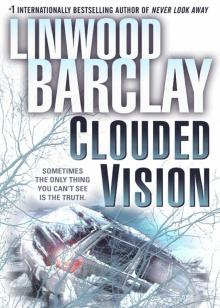 Clouded Vision
Clouded Vision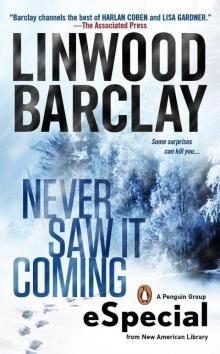 Never Saw It Coming
Never Saw It Coming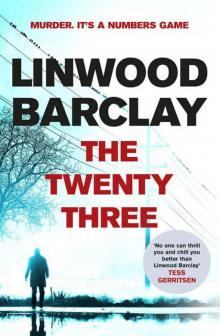 The Twenty-Three
The Twenty-Three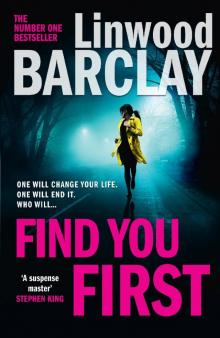 Find You First
Find You First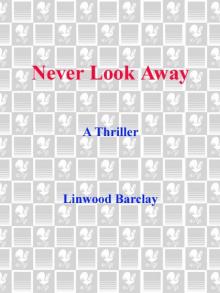 Never Look Away
Never Look Away Elevator Pitch (UK)
Elevator Pitch (UK)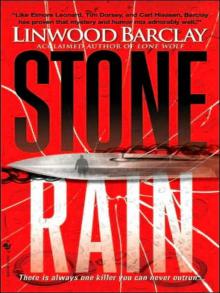 Stone Rain zw-4
Stone Rain zw-4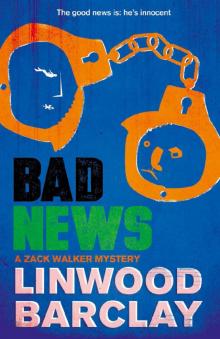 Bad News: A Zack Walker Mystery #4
Bad News: A Zack Walker Mystery #4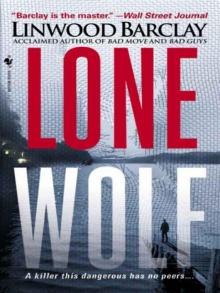 Lone Wolf zw-3
Lone Wolf zw-3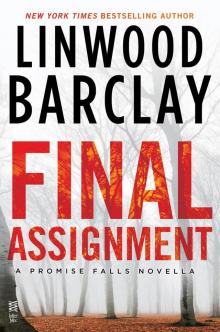 Final Assignment: A Promise Falls Novella
Final Assignment: A Promise Falls Novella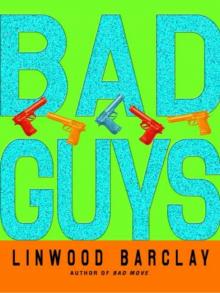 Bad Guys zw-2
Bad Guys zw-2 Never Saw It Coming: (An eSpecial from New American Library)
Never Saw It Coming: (An eSpecial from New American Library)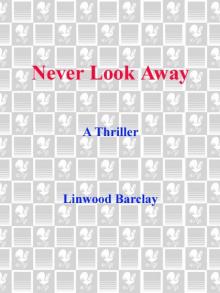 Never Look Away: A Thriller
Never Look Away: A Thriller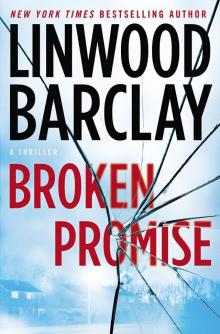 Broken Promise: A Thriller
Broken Promise: A Thriller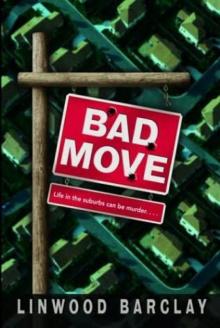 Bad Move zw-1
Bad Move zw-1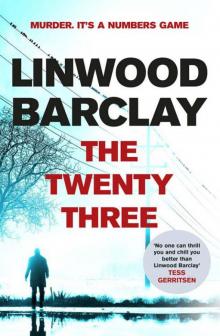 The Twenty-Three 3 (Promise Falls)
The Twenty-Three 3 (Promise Falls)